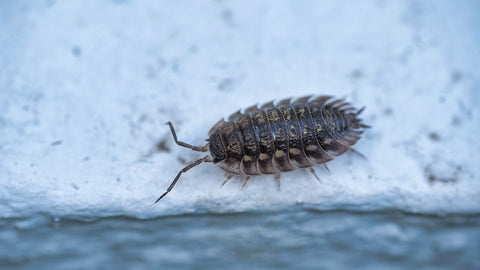The Fascinating World of Isopods: Nature's Tiny Decomposers

Introduction
Isopods, a diverse group of over 10,000 crustacean species, play a crucial role in the ecosystem as efficient decomposers. Commonly known as woodlice, pillbugs, sow bugs, or roly-polies, these intriguing creatures can be found in saltwater, freshwater, and terrestrial environments worldwide. With their chitinous segmented exoskeleton, seven pairs of jointed limbs, and two pairs of antennae, isopods come in various colors and patterns.
Terrestrial isopods, which are common in the exotic pet trade, thrive in cool, moist environments such as leaf litter, under wood debris, and under rocks. These detritivores primarily consume dead organic matter like moss, bark, algae, fungi, and decaying wood, playing a vital role in enriching the soil and promoting healthy plant growth.
Popular Isopod Species in the Exotic Pet Trade:
- Armadillium: A. granulatum, A. klugii, A. maculatum, A. nasatum, A. vulgare
- Atlantoscia: A. floridana
- Cubaris: C. sp. Panda King, C. sp. Rubber Ducky
- Porcellio: P. dilatatus, P. laevis, P. scaber
- Porcellionides: P. pruinosus
- Trichoniscidae: T. sp. Costa Rican Dwarf Purple
- Trichorina: T. tomentosa
Keeping Isopods in Captivity:
- As Pets: Isopods make low-maintenance pets suitable for those with limited space or strict landlord policies. They are convenient, inexpensive to feed, and can be unobtrusive additions to plant terraria.
- As Clean-Up Crew (CUC) in Bioactive Vivaria: Isopods are an essential component of bioactive terrariums housing reptiles and amphibians. They efficiently break down waste, keeping the soil fresh and healthy.
- As Feeders: While not the most popular feeder insects, isopods can be a nutritious and enriching addition to a varied diet for reptiles and amphibians. However, due to their potentially high heavy metal content, they should not be used as a staple feeder.
Conclusion
Isopods are not only fascinating creatures but also valuable contributors to their ecosystems. As pets, they offer an easy-to-care-for option for invertebrate enthusiasts, while their role as decomposers in bioactive terrariums helps maintain a healthy environment for reptiles and amphibians.
